Susan Bernofsky's Blog, page 47
November 25, 2014
Translation on Tap in NYC, Dec. 1 – 15, 2014
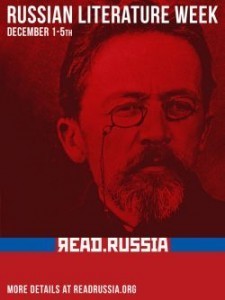 Thanksgiving is almost here, which means the holiday season is now officially upon us. Translationista wishes everyone a sane and, let’s hope, not too overly commercial holiday season. Fortunately there are a few translation events coming up in early December to sweeten the deal, including three that are part of Read Russia’s Russian Literature Week. Here’s what’s on tap:
Thanksgiving is almost here, which means the holiday season is now officially upon us. Translationista wishes everyone a sane and, let’s hope, not too overly commercial holiday season. Fortunately there are a few translation events coming up in early December to sweeten the deal, including three that are part of Read Russia’s Russian Literature Week. Here’s what’s on tap:
Monday, Dec. 1:
An evening with Pierre Joris and Paul Auster to celebrate the publication of Joris’s new volume of Paul Celan translations, Breathturn into Timestead: The Collected Later Poetry, moderated by Ulrich Baer. New York University, Silver Center – Hemmerdinger Hall, 100 Washington Square East. Reservations recommended, more information here. 7:00 p.m.
Also Monday, Dec. 1:
“New Old Classics: Pushkin, Tolstoy, Dostoyevsky, Chekhov,” a panel discussion celebrating new translations of Alexander Pushkin’s The Captain’s Daughter from New York Review Books and Lev Tolstoy’s Anna Karenina, translated by Marian Schwartz, from Yale University Press. With Marian Schwartz and editor Edwin Frank, moderated by Esther Allen, The Grolier Club, 47 East 60th St., free admission, RSVP recommended. 7:00 p.m.
Tuesday, Dec. 2 at noon:
“Then and Now: Classics v. Contemporary Literature,” a panel discussion with translators Marian Schwartz, Ross Ufberg (also the publisher of New Vessel Press) and Ronald Meyer, featuring new translations of works by Anton Chekhov from W. W. Norton, Andrei Gelasimov from Amazon Crossing, Sergei Lebedev and Vladimir Lorchenkov from New Vessel Press, Leo Tolstoy from Yale University Press, and Leonid Yuzefovich from Glagoslav. Columbia University, Harriman Institute, School of International and Public Affairs, RSVP here. 420 West 118th St., 12:00 p.m.
Wednesday, Dec. 3:
“Publishing and Politics”: Is there a relationship between world events and the choices that publishers make? Why do some literary works get published in translation before they appear in their native language? Publisher and translator Jeff Parker of Dzanc and translators Marian Schwartz and Antonina W. Bouis in conversation about the way the bigger picture (international affairs, state policies) can influence what gets translated, what gets published – and when. Moderated by author, translator, and critic Liesl Schillinger. Followed by a reception. Featuring new translations of Arkady and Boris Strugatsky’s Definitely Maybe from Melville House and Zakhar Prilepin’s Sankya from Dzanc Books. RSVP here. Book Culture, 536 West 112th St., 7:00 p.m.
Friday, Dec. 5 and Saturday, Dec. 6:
The 2014 edition of the New Literature from Europe festival bears the title “Crossing Borders: Europe Through the Lens of Time.” Along with readings by a good dozen European writers (complete list here), the festival will feature a keynote address by New Directions publisher Barbara Epler, who has shepherded many a translation into print (including several of my own), at 8:00 p.m. on Dec. 5, and the prize ceremony for the Found in Translation Award, which is being given to Philip Boehm, at 7:30 p.m. on Dec. 6. Boehm will also appear on a 2:00 p.m. panel on Dec. 6 entitled “Love in a Time of War.” These and the rest of the festival events will be held at the Austrian Cultural Forum, 11 E 52nd St., full schedule here.
The post Translation on Tap in NYC, Dec. 1 – 15, 2014 appeared first on TRANSLATIONiSTA.
November 16, 2014
Translation on Tap in NYC, Nov. 16 – 30, 2014
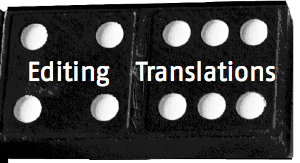 Wouldn’t you know it, I was away at the ALTA conference (I’ll post about that soon), and the events I most neglected to post about are my own. Let it be known that my brilliant, funny, wise, goofy author Jenny Erpenbeck is in town, and she and I will be participating in an event to celebrate the appearance of her latest – and IMHO also greatest to date, though I love them all – novel The End of Days. Voila:
Wouldn’t you know it, I was away at the ALTA conference (I’ll post about that soon), and the events I most neglected to post about are my own. Let it be known that my brilliant, funny, wise, goofy author Jenny Erpenbeck is in town, and she and I will be participating in an event to celebrate the appearance of her latest – and IMHO also greatest to date, though I love them all – novel The End of Days. Voila:
Monday, Nov. 17:
Book Launch for The End of Days with Jenny Erpenbeck (recently interviewed on NPR), her translator (=Translationista) and moderator Jenny Hendrix, who wrote about the novel for Bookforum. More information here. McNally Jackson Books, 52 Prince St., 7:00 p.m.
Tuesday, Nov. 18:
The German Book Office is hosting a panel entitled Editing Translations/Editing Susan: How to Edit Works in Translation that will feature three editors I’ve worked with in the past (Edwin Frank, Declan Spring and Stephen Twilley) talking about editing translations in general and editing me in particular. Please show up to defend my honor as needed. Moderated by Edward Nawotka (moderator) and special guest Jenny Erpenbeck (!). More information here. Also note that the Goethe-Institut will be moving soon, so this may be one of your last chances to peer out their 11th floor windows over the rooftops of Soho. Goethe-Institut New York, 72 Spring St., 11th Fl., 6:00 p.m.
Thursday, Nov. 20:
Ari Larissa Heinrich, translator of Last Words from Montmartre, will discuss Taiwanese novelist Qiu Miaojin’s final work. Note that the author has been blurbed by Eileen Myles (so yes, you should be interested). More information here. Bluestockings Bookstore, 172 Allen Street, 7:00 p.m.
Saturday, Nov 22:
Translationista and filmmaker Guy Maddin will be appearing together at Anthology Film Archives to discuss the visionary early-20th-century writer and dreamer Paul Scheerbart and a selection of short films curated by Maddin around the idea “Perpetual Motion,” the title of a Scheerbart novella I translated for the volume Glas! Love!! Perpetual Motion!!! edited (and with art by) Josiah McElheny and Christine Burgin. This is a ticketed event. More information here. Anthology Film Archives, 32 2nd Ave. (at 2nd St.), 8:00 p.m.
The post Translation on Tap in NYC, Nov. 16 – 30, 2014 appeared first on TRANSLATIONiSTA.
November 10, 2014
2014 ALTA Conference
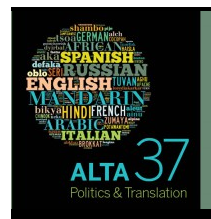 This is the week – translators everywhere are packing their bags and preparing to head to Milwaukee for the 2014 conference of the American Literary Translators Association. It looks to be a splendid iteration of the conference, with a keynote on Saturday morning by poet/essayist/translator Christopher Merrill and, as part of the opening reception on Wednesday evening, the launch event for a very special anthology: The Man Between: Michael Henry Heim & A Life in Translation, to which many ALTA members contributed. As always there’ll be a reading of work by the six ALTA Fellows, and this year there’ll also be a reading from the works that have been named finalists for the National Translation Award. There’ll be some offsite readings too, and, for the first time ever, the chance to “speed-date” an editor at the conference. The full conference program is now online, have a look! I’ll be there, so if you see me, say hello.
This is the week – translators everywhere are packing their bags and preparing to head to Milwaukee for the 2014 conference of the American Literary Translators Association. It looks to be a splendid iteration of the conference, with a keynote on Saturday morning by poet/essayist/translator Christopher Merrill and, as part of the opening reception on Wednesday evening, the launch event for a very special anthology: The Man Between: Michael Henry Heim & A Life in Translation, to which many ALTA members contributed. As always there’ll be a reading of work by the six ALTA Fellows, and this year there’ll also be a reading from the works that have been named finalists for the National Translation Award. There’ll be some offsite readings too, and, for the first time ever, the chance to “speed-date” an editor at the conference. The full conference program is now online, have a look! I’ll be there, so if you see me, say hello.
The post 2014 ALTA Conference appeared first on TRANSLATIONiSTA.
November 9, 2014
Jenny Erpenbeck on the Fall of the Berlin Wall
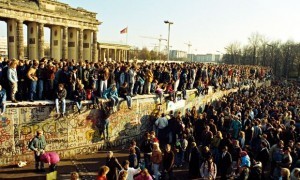 Twenty-five years ago today the Berlin Wall that had divided East and West Berlin since 1961 was opened. This happened precipitously and with extreme euphoria, though the East German government had been preparing to allow its citizens to travel far more freely in response to ongoing massive peaceful demonstrations and in light of the fact that it had become increasingly easy for East Germans to escape to the West via other Eastern Bloc countries (particularly Hungary), and more and more of them were doing so. Politburo member Günter Schabowski, who had been handed a document concerning a new decision to ease travel restrictions for East German citizens on his way to an early-evening press conference about other matters, wound up reading aloud from this paper in response to questions from an Italian journalist, inadvertently announcing the new travel policy, which no one had told him was not to be made public until the official press release came out the following day. The news spread like wildfire over West Berlin radio stations, which many East Berliners listened to, and the American radio station RIAS [Radio in the American Sector] soon reported (erroneously): “The GDR has announced that its borders have now been opened for everyone. The gates in the Wall are standing wide open.” Soon thousands of East Berliners had gathered at all the checkpoints, demanding passage to West Berlin. And while East German authorities had never intended to just open the wall – the new travel policy would still have involved regulation, formal applications, and the possibility of denying requests to travel – the officials in charge realized that they would have to either open the Wall or risk massive bloodshed in confrontations with border guards, and they took the leap and gave orders to open the border. It was a truly incredible moment. I remember finding out about it the next morning while walking down Skinker Blvd. in St. Louis on the way to the Washington University campus and passing a newspaper box; I did a double take when I glimpsed the front page of the New York Times and its headline announcing that the Wall was open, along with a big photograph of people standing on top of the wall in front of the Brandenburg Gate, a surreal image.
Twenty-five years ago today the Berlin Wall that had divided East and West Berlin since 1961 was opened. This happened precipitously and with extreme euphoria, though the East German government had been preparing to allow its citizens to travel far more freely in response to ongoing massive peaceful demonstrations and in light of the fact that it had become increasingly easy for East Germans to escape to the West via other Eastern Bloc countries (particularly Hungary), and more and more of them were doing so. Politburo member Günter Schabowski, who had been handed a document concerning a new decision to ease travel restrictions for East German citizens on his way to an early-evening press conference about other matters, wound up reading aloud from this paper in response to questions from an Italian journalist, inadvertently announcing the new travel policy, which no one had told him was not to be made public until the official press release came out the following day. The news spread like wildfire over West Berlin radio stations, which many East Berliners listened to, and the American radio station RIAS [Radio in the American Sector] soon reported (erroneously): “The GDR has announced that its borders have now been opened for everyone. The gates in the Wall are standing wide open.” Soon thousands of East Berliners had gathered at all the checkpoints, demanding passage to West Berlin. And while East German authorities had never intended to just open the wall – the new travel policy would still have involved regulation, formal applications, and the possibility of denying requests to travel – the officials in charge realized that they would have to either open the Wall or risk massive bloodshed in confrontations with border guards, and they took the leap and gave orders to open the border. It was a truly incredible moment. I remember finding out about it the next morning while walking down Skinker Blvd. in St. Louis on the way to the Washington University campus and passing a newspaper box; I did a double take when I glimpsed the front page of the New York Times and its headline announcing that the Wall was open, along with a big photograph of people standing on top of the wall in front of the Brandenburg Gate, a surreal image.
For East Germans, the fall of the Wall represented an enormous change to life as they knew it. For East Germans my age, it meant in many cases, among other things, learning that the university degrees they had just completed were invalid and that they would have to start over. For East Germans their parents’ age, it meant in many cases immediate unemployment that would sometimes prove permanent. And for all the triumphalism surrounding “unification” or “reunification” (the choice of word was political), many East German voices continued to point out all the things that had been functional and good in East German society: public health and child care, no unemployment, almost no poverty. For many, joining the capitalist West was a mixed bag, though of course the freedom to travel, the (relative) freedom of the press and the end of constant surveillance were warmly received.
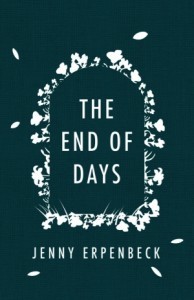 This week with its anniversary also marks the publication (on Nov. 11) of my translation of the novel The End of Days by East German author Jenny Erpenbeck – she was 22 years old when the Wall fell and is highly conscious in her work of having grown up in the East. This novel features characters whose political convictions (they are Communists in Nazi Germany and Austria) prompt them to emigrate to the Soviet Union, though things do not go well for them there, and the novel’s protagonist is happy and relieved to find a home in East Berlin, where her work as a writer can finally serve the cause she believes in. This is the fourth book by Jenny I’ve translated, and I think it’s her best to date. You can hear her speaking about it in English in a brief interview broadcast on NPR’s Weekend Edition today.
This week with its anniversary also marks the publication (on Nov. 11) of my translation of the novel The End of Days by East German author Jenny Erpenbeck – she was 22 years old when the Wall fell and is highly conscious in her work of having grown up in the East. This novel features characters whose political convictions (they are Communists in Nazi Germany and Austria) prompt them to emigrate to the Soviet Union, though things do not go well for them there, and the novel’s protagonist is happy and relieved to find a home in East Berlin, where her work as a writer can finally serve the cause she believes in. This is the fourth book by Jenny I’ve translated, and I think it’s her best to date. You can hear her speaking about it in English in a brief interview broadcast on NPR’s Weekend Edition today.
Earlier this year, Jenny also wrote a long essay about her memories of her childhood in East Berlin (she went to school half a block from the Wall) and how she experienced the events of November 1989. An excerpt from this essay has just been published on the website of The Paris Review.
The post Jenny Erpenbeck on the Fall of the Berlin Wall appeared first on TRANSLATIONiSTA.
October 29, 2014
Translation on Tap in NYC, Nov. 1 – 15, 2014
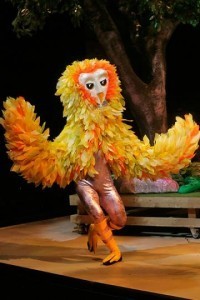
Owl à la Mizrahi
Here’s what’s coming up in Translationland NYC for early November:
Saturday, Nov. 1:
A Thousand Forests in One Acorn: Valerie Miles, Eliot Weinberger and Juan José Herrera de la Muela, all translators as well as writers, editors and (in the latter case) diplomat, join to celebrate the publication of this anthology of Spanish-language writing just out from Open Letter. McNally Jackson Books, 52 Prince St., 6:00 p.m.
Wednesday, Nov. 5:
Translator-author Assaf Gavron appears with fellow authors Etgar Keret, Gina Nahai and Salar Abdoh to celebrate the publication by Akashic Books of a pair of moody short-fiction anthologies, Tehran Noir and Tel Aviv Noir. Moderated by Rick Moody. The event would have been even cooler if it had involved the translators of the anthologies as well, but at least one of them (Yardenne Greenspan, translator of Tel Aviv Noir) has written an essay about it. Live from the NYPL (yes, you have to buy a ticket to attend), 42nd St. Library (42nd St. entrance), 7:00 p.m.
Also Wednesday, Nov. 5 (yes, you have to choose):
Translationista will take the stage with Isaac Mizrahi to discuss their recent backstage collaboration on a new production of Mozart’s opera The Magic Flute for the Opera Theatre of St. Louis. There’ll be show and tell, stories of rehearsal mishaps and translation tidbits, moderated by Anne Bogart. Buell Hall (Maison Française), Columbia University, free, but advance reservations strongly recommended, more information here. 6:30 p.m.
Monday, Nov. 10:
Tahrir Plays and Performance Texts: Politics, Aesthetics, Translation: A staged reading of “They Say Dancing is a Sin” (about women in Egypt and their role in the Arab Spring) from the forthcoming anthology Tahrir Plays and Performance Texts from the Egyptian Revolution (Seagull Books), followed by a discussion with series editor Carol Martin and the co-editors and translators of the volume, Mohammed Albakry and Rebekah Maggor. This is a co-presentation by Barnard’s Theater Department and Center for Translation Studies. More information here. Glicker-Milstein Theatre, The Diana Center, Room LL200 on the Barnard campus (enter at Broadway and 117th St.), 6:30 p.m.
Thursday, Nov. 13:
The great poet-translator Richard Howard (who’s translated so many important books from the French you could build a tiny house out of them) will be appearing for an evening billed as “A Retrospective Reading” apropos of his new book of poems, A Progressive Education, but I’m hopeful that he’ll read some translations as well as his own poems written originally in English. Columbia University, Italian Academy, 1161 Amsterdam Ave (between 116 and 118th St.), RSVP requested, more information here. 7:00 p.m.
Also Thursday, Nov. 13 (yes, you have to choose):
The Drowned Blackbird: Paul Muldoon on Translating Gaelic Poetry. The Pulitzer-Prize-winning poet and translator will be talking, no doubt, about this lovely little book of his in this 10th biennial Stanley Burnshaw Lecture (more information here), held in the William P. Kelly Skylight Room (Rm. 9100) at the CUNY Graduate Center, 365 Fifth Ave., 7:00 p.m.
The post Translation on Tap in NYC, Nov. 1 – 15, 2014 appeared first on TRANSLATIONiSTA.
October 27, 2014
Transgender Translation Studies
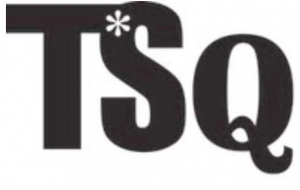 Translationista is a blog about literary translation, not translation studies per se, which is why you don’t find as many announcements of academic events here as of readings etc., but this call for papers by the Transgender Studies Quarterly caught my attention, so I’m passing it along. I’ve been hearing more and more lately about projects to “queer” both translation studies and translations themselves. For example there was a great panel at this year’s AWP conference on the subject of Queer Translation, featuring Joyelle McSweeney, Johannes Goransson, Don Mee Choi, Lucas DeLima and Jeffrey Angles (the first two of whom had previously collaborated on a book project that explored new ways of imagining/writing about translation). This was their AWP panel description:
Translationista is a blog about literary translation, not translation studies per se, which is why you don’t find as many announcements of academic events here as of readings etc., but this call for papers by the Transgender Studies Quarterly caught my attention, so I’m passing it along. I’ve been hearing more and more lately about projects to “queer” both translation studies and translations themselves. For example there was a great panel at this year’s AWP conference on the subject of Queer Translation, featuring Joyelle McSweeney, Johannes Goransson, Don Mee Choi, Lucas DeLima and Jeffrey Angles (the first two of whom had previously collaborated on a book project that explored new ways of imagining/writing about translation). This was their AWP panel description:
As translators, artists, scholars, and performers, we’ll consider how ‘queer translation’ might host a queer interaction or strange meeting; how it might undermine nationalist demarcations of the body, including binaries separating male and female, able and disabled, human and inhuman, whole and partial bodies; the force of translation as a ‘political uncanny’; and whether translation itself might figure a queer or middle body, an activist body, a political resource.
And now TSQ is upping the ante with a translation themed issue entitled Translating Transgender, edited by David Gramling and Aniruddha Dutta, and I’m glad to see it in the works. It was only a matter of time before these two trans fields crossed paths, particularly as both of them place so much emphasis on transitional states and forms of crossing over. Even just the call for papers contains information I didn’t have before, like this: “transgender, gender variant, and gender non-conforming people have often been exiles, translators, language mediators, and multilinguals in greater numbers and intensities historically than their cisgender counterparts have.” Didn’t realize that’s what the statistics were. I definitely want to read more about this, and there’s a very strong list of suggested topic categories, so I’m looking forward to Issue 3.3 (great number!) of the TSQ. If you work in this field, or want to, check out the call for papers here. Naturally, papers will be accepted in whatever language you write in, not just English. Submission deadline March 1, 2015.
The post Transgender Translation Studies appeared first on TRANSLATIONiSTA.
October 23, 2014
Goodmorning Menagerie Translation Chapbook Contest
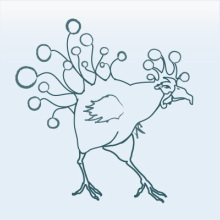 Who likes a challenge? Who’s translating a chapbook? For a modest submission fee ($5), you can enter your 10-20 page translated chapbook in Goodmorning Menagerie’s inaugural Chapbook-in-Translation Contest. If you win the gold, your work will appear in a limited-edition handmade chapbook with a woodblock-printed cover that will come out in time for AWP 2015. Any questions? Check out submission details on the GM website. If you’re interested, you’d better act fast – the deadline for submissions is Halloween, Oct. 31, 2014.
Who likes a challenge? Who’s translating a chapbook? For a modest submission fee ($5), you can enter your 10-20 page translated chapbook in Goodmorning Menagerie’s inaugural Chapbook-in-Translation Contest. If you win the gold, your work will appear in a limited-edition handmade chapbook with a woodblock-printed cover that will come out in time for AWP 2015. Any questions? Check out submission details on the GM website. If you’re interested, you’d better act fast – the deadline for submissions is Halloween, Oct. 31, 2014.
Translationista notes that the Menagerie guidelines request that the translator submit a “copyright page stating that you have the author’s (or their estate’s) permission to translate and publish this work.” FYI, legal permission to publish copyrighted work in translation can only ever be granted to a publisher (book or magazine publisher), not to a person (translator) – that’s how the law works. So I recommend that you, the translator, contact the holder of the rights (check the copyright notice in the original book or journal – the poet often holds the copyright but not always) to confirm that the rights are available, and communicate this information to the Goodmorning folks. Then when you win the competition you can assist them in negotiating with the rights holder to secure the final permission to print the work.
The post Goodmorning Menagerie Translation Chapbook Contest appeared first on TRANSLATIONiSTA.
October 21, 2014
Speed-Date an Editor at the ALTA Conference
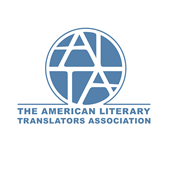 This year’s ALTA (American Literary Translators Association) conference in Milwaukee is coming right up (Nov. 12-15, 2014), and if you’re planning to attend, why not sign up for ALTA’s new speed-dating service for editors and translators? No, this doesn’t mean you’re guaranteed romance, but translators who are accepted into this program will be paired with an editor from a respectable publication (such as Words Without Borders, Open Letter, The Literary Review, or the Notre Dame Review) who will give feedback and advice on up to two pages of work. What could beat that? You can even submit specific questions along with the work sample if you’d like. Oh, and it’s free, or almost. Participants don’t have to pay anything, but if you can afford to, ALTA requests that you donate $10 to support future programming of this and other wonderful sorts.
This year’s ALTA (American Literary Translators Association) conference in Milwaukee is coming right up (Nov. 12-15, 2014), and if you’re planning to attend, why not sign up for ALTA’s new speed-dating service for editors and translators? No, this doesn’t mean you’re guaranteed romance, but translators who are accepted into this program will be paired with an editor from a respectable publication (such as Words Without Borders, Open Letter, The Literary Review, or the Notre Dame Review) who will give feedback and advice on up to two pages of work. What could beat that? You can even submit specific questions along with the work sample if you’d like. Oh, and it’s free, or almost. Participants don’t have to pay anything, but if you can afford to, ALTA requests that you donate $10 to support future programming of this and other wonderful sorts.
So you’re interested in signing up? Great! The deadline for submissions was originally this Friday, Oct. 24, but I just heard it’s being extended to Tuesday, Oct. 28.
Oh, and here’s one bit of Translationista advice for you: To get the most out of an opportunity like this, make sure the excerpt you submit has been polished and revised to within an inch of its life. If you submit a translation with obvious clunkers in it, that’s all the editor will see. Show the editor your work at its absolute best so she won’t spend your session pointing out problems you already knew were problematic.
More information and complete instructions on how to apply and submit your work can be found here. Happy dating!
The post Speed-Date an Editor at the ALTA Conference appeared first on TRANSLATIONiSTA.
Magazines That Publish Translations
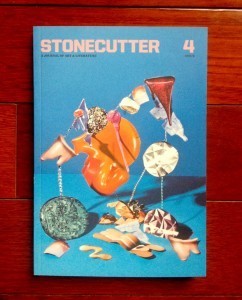 I often get asked by younger translators where they should try sending their work. It’s a good question. My answer often winds up sounding a bit schoolmarmish, since I believe that translators – like writers of other sorts – should actually read the journals they want to send their work to. If you have no idea where to send your work, it might mean you never read any journals that publish translations. So a good list of magazines that publish translations ideally serves two functions: first (and most importantly) it lets you know what journals you might enjoy reading if you like reading literature from around the world. Second (if you’re a translator) it lets you know where you might try submitting your work if you’ve just translated something great that you think others would enjoy as well. And the new and improved PEN Translation Committee has just updated the list of “Journals Seeking Work in Translation” on the PEN website, and I recommend you check it out. Mind you, this isn’t a complete list of all the magazines that publish translated work, just the ones that are actively seeking submissions. Every good literary magazine worth its salt publishes translations alongside writing in English. But a work in translation that you cold-submit to Harpers or The New Yorker is pretty likely to wind up on the slush pile in pretty short order, whereas the magazines actively looking for great translations to publish are more likely to greet your submission with little cries of delight. And that, after all, is what you’re after. So do have a look at the list of translation-loving journals on the PEN website, and while you’re there, how about subscribing to one or two of them?
I often get asked by younger translators where they should try sending their work. It’s a good question. My answer often winds up sounding a bit schoolmarmish, since I believe that translators – like writers of other sorts – should actually read the journals they want to send their work to. If you have no idea where to send your work, it might mean you never read any journals that publish translations. So a good list of magazines that publish translations ideally serves two functions: first (and most importantly) it lets you know what journals you might enjoy reading if you like reading literature from around the world. Second (if you’re a translator) it lets you know where you might try submitting your work if you’ve just translated something great that you think others would enjoy as well. And the new and improved PEN Translation Committee has just updated the list of “Journals Seeking Work in Translation” on the PEN website, and I recommend you check it out. Mind you, this isn’t a complete list of all the magazines that publish translated work, just the ones that are actively seeking submissions. Every good literary magazine worth its salt publishes translations alongside writing in English. But a work in translation that you cold-submit to Harpers or The New Yorker is pretty likely to wind up on the slush pile in pretty short order, whereas the magazines actively looking for great translations to publish are more likely to greet your submission with little cries of delight. And that, after all, is what you’re after. So do have a look at the list of translation-loving journals on the PEN website, and while you’re there, how about subscribing to one or two of them?
The post Magazines That Publish Translations appeared first on TRANSLATIONiSTA.
Susan Bernofsky's Blog
- Susan Bernofsky's profile
- 62 followers



